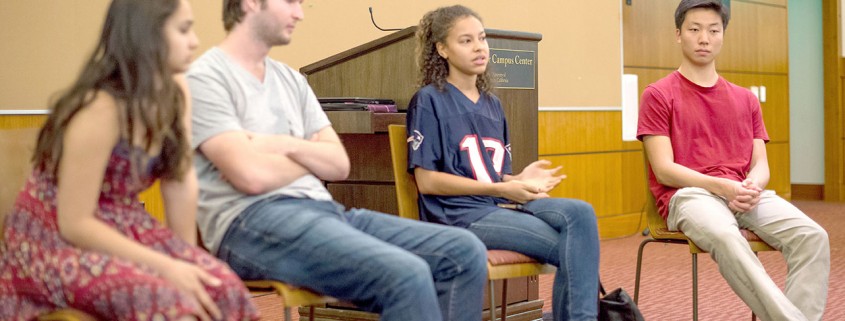PSA event discusses mass incarceration
The Political Student Assembly met Monday night to discuss the issue of mass incarceration in the United States in the wake of President Barack Obama’s historic visit to a U.S. prison. The event, “In a Nutshell: Federal Prison System,” was part of a weekly discussion group series hosted by PSA and the Undergraduate Student Government Program Board and touched upon issues such as mandatory minimum sentencing and racial inequality in the inmate population.
In July, Obama became the first sitting president to visit a U.S. prison when he traveled to El Reno, Oklahoma, to speak to inmates convicted of nonviolent drug offenses. According to Kyla Middleton, director of political content for the PSA, the trip sparked ideas for reform that Obama hopes will influence Congress to enact prison reform through legislation.
“Maybe we can start having a conversation about how to fix the system in a way that actually makes [inmates] helpful members of society that are more able to integrate back into day to day life,” Middleton said.
One of the topics brought up during the discussion was the privatization of the prison system, which incentivizes long-term imprisonment. According to Daphne Blakey, a senior majoring in economics, mathematics and sociology, powerful prison lobbies influence legislators to craft stronger sentencing laws, which ultimately keeps people in prison longer.
“I think that a profit motive has no place in the U.S. prison system,” Blakey said. “Companies make the most money when they’re housing as many prisoners as possible, for as little cost as possible — so we’re talking about hyper-incarceration and really poor conditions.”
Other issues discussed included recidivism, or the recurrence of criminal activity in individuals who have gone through the prison system. Middleton and others considered the example of Norway, which focuses on rehabilitation for its prisoners and experiences recidivism rates that are less than half of those in the United States; however, students such as Dominique Brown, a junior majoring in narrative studies, disagreed.
“I like the idea of rehabilitation for nonviolent offenders, but there are bigger things that we should worry about, like decriminalizing a lot of nonviolent offenses and taking away the stigma after they are released,” Brown said. “There are a lot of issues that are going to hold [inmates] back in society even if they got training while they were [in prison].”
Ultimately, event organizers such as PSA assistant director Shawn Ren, a junior majoring in computer engineering and computer science, hope that weekly PSA meetings can provide a forum for discussion and combat political apathy on campus.
“We’re trying to provide a safe space where people … can get together to discuss issues that affect them,” Ren said. “We just want them to get more interested in politics and to learn more about the political issues so they can become better informed citizens, vote more and participate more.”

